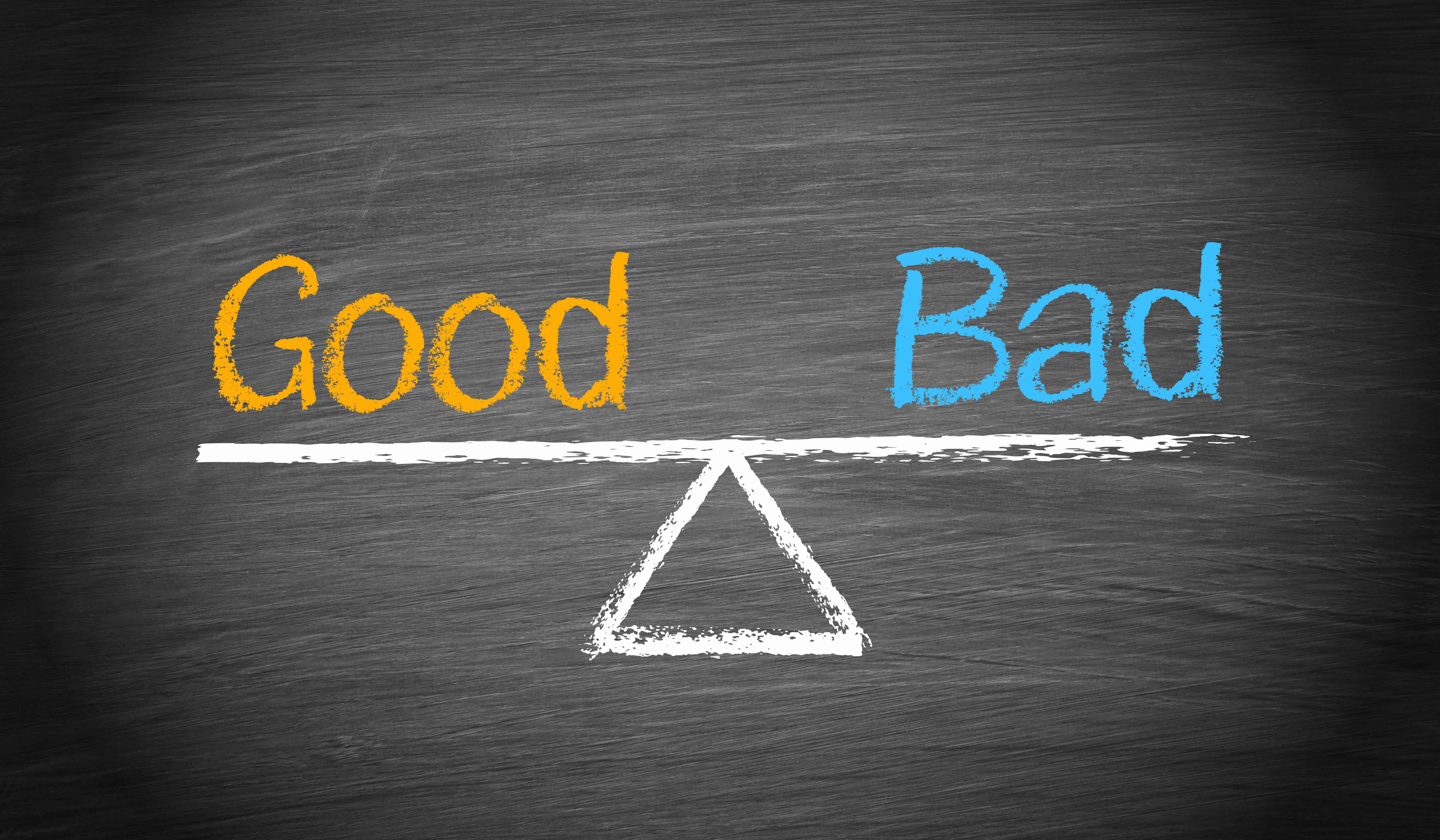
ALL debt is bad, right???? Owing money to someone else is something to be avoided at all costs? 53% of Americans admit feeling some serious stress about their Debt! The average total household debt of a typical American household is nearly $140,000!
That’s something we can obviously relate to at The Bargain Radar! The whole reason we started this site was because of our own experiences with debt, credit card debt, trying to improve our credit scores and find better ways to make financial decisions.
What we have learned is that you can let some of the stress go when you understand the ‘type’ of debt you have and how you think about it. It can really help you in your future decisions. What you need to know if ‘Is your debt good or bad?’
Defining good and bad debt:
This breakdown is vitally important. Allowing yourself to view new debt as ‘good debt’ seems counter-intuitive, but it is easy to break down, what ‘Good Debt’ is:
- Does this debt or loan improve your future financial position? Does it increase your net worth? Think about it… If you are borrowing today to improve your financial future that makes total sense, right? So, which types of debt fall into this category?
- Student Loans: This is one of the most obvious. You are investing now to secure a job with a higher salary for the rest of your career. Without this loan, the higher salary over the decades would be much less likely.
- Mortgages: History shows that investing in real estate has multiple positive future impacts. Firstly, you move from a rental property, where your money goes to someone else, to that money going to a property you own. Secondly, when you have completed paying for the property, historical trends show that you would then be the owner of something worth perhaps 2 or 3 times the mortgage amount.
- Loans to consolidate or pay debt: If you have a significant amount of high-interest, credit card debt and you move this to a long-term loan with a lower interest rate, this is lowering your overall payments over the years of the new loan.
And what about ‘Bad Debt’:
- Conversely, this is debt that does not improve your future financial position.
- Credit Cards: we ALL know that credit card debt, unless handled in a very specific way, is some of the worst debt to have. Interest rates can be sky-high, and unless you keep the credit card usage under 30%, it will not have a positive effect on your overall credit score. Read more here.
- Payday loans: When I used the phrase ‘sky-high’ for credit cards, the rates payday loan providers charge would be ‘moon high’. Simply put NEVER use payday loans – you will head into a spiral of horrible debt that it is almost impossible to get out of.
- Loans for a short-term gain: Whereas a loan to consolidate debt and pay less over the longer term is good debt, if you think about a loan just for a vacation, or shopping, or some other short-term frivolous ‘need’ – then stop and think and change your thought process that got you here. Instead, go and read our other articles on changing the way you think about debt and credit.
There are some grey areas, of course.
Auto Loans/Car Loans can be seen either way, depending on your usage. Auto loans are generally viewed a bad debt, as the moment you buy a car it’s worth starts to depreciate. However, the depreciation can be covered by other costs related if you DIDN’T have the car – i.e. living closer to a city with more living costs; other transportation costs, etc. Indeed, it’s also important to factor in how necessary the car is for your everyday life and work!
So, there you go Bargain Radar readers 😊
As we have discovered throughout the process of working through our own debt issues here at The Bargain Radar, it’s all about knowledge and thinking about each facet of your financial lives from a new viewpoint. We learn every day. We listen and try to add to our knowledge on a daily basis. Good luck on your financial travels!
